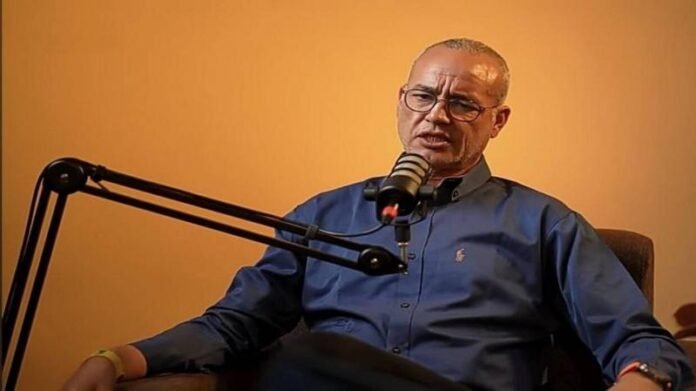How do these positions contradict the clear royal stance that defines the Moroccan Sahara as the standard for international relations?
Amid the international and regional developments surrounding the Moroccan Sahara issue, His Majesty King Mohammed VI has laid out a clear and decisive standard in his speeches: the Moroccan Sahara is the benchmark that determines the nature of relations and partnerships between Morocco and other countries worldwide.
This stance has marked a significant shift in Morocco’s foreign policy, requiring all partner nations to adopt a clear and unequivocal position regarding the Moroccan Sahara. The support of major powers like the United States and France for the autonomy proposal as a realistic solution reinforces this royal vision, considering the Sahara an inseparable part of national sovereignty.
Today, Morocco no longer accepts “ambiguous positions” or compromises, as defending the Sahara has transcended political interests to become a national sacred cause that unites all Moroccans.
Aziz Ghali’s Statements: Undermining National Consensus
In this crucial context, Aziz Ghali, president of the Moroccan Association for Human Rights, made controversial remarks exploited by adversaries of Morocco’s territorial integrity. Among his statements:
- He questioned the necessity of negotiations, claiming that any solution should “satisfy all parties” instead of adhering to national and international references supporting autonomy as the final solution.
- He referred to the association’s stance on the Sahara issue, citing “UN legitimacy” while failing to present a clear position aligning with national consensus.
His statements come at a sensitive time, coinciding with Morocco’s diplomatic gains, notably France’s recent support for Moroccan sovereignty and the United States’ recognition of the autonomy initiative. Such discourse undermines national consensus and provides a golden opportunity for Algerian media and enemies of territorial integrity to distort facts.
Consequences of the Statements and State Responsibility
Amid these developments, questions arise: How will the state respond to Ghali’s statements that contradict national constants?
- Legal Action: Under Moroccan law and the Constitution, any statement threatening national unity or undermining its principles may subject its author to legal accountability.
- Clarification and Awareness: State institutions and national media must expose the background of such statements and demonstrate their contradictions with Morocco’s diplomatic achievements.
- Reaffirmation of the Royal Position: The King’s directives remain the primary guarantee for sustaining national consensus around the Sahara issue, Morocco’s foremost unifying cause.
Double Standards: Official Position vs. Individual Voices
Ghali’s statements raise concerns about the responsibility of organization leaders to adopt positions aligned with national interests, especially as Morocco enters a new phase of foreign policy grounded in firmness and clarity.
- Official Position: It advocates for a final political solution through autonomy as a realistic option ensuring regional stability and development.
- Specific Organizations’ Stances: Despite claiming UN legitimacy, their failure to align with national consensus creates divisions that only serve Morocco’s adversaries.
The Algerian Context and the Arrest of Boualem Sansal
Simultaneously, Ghali’s remarks coincide with Algeria’s arrest of writer Boualem Sansal, who publicly acknowledged Morocco’s sovereignty over the Sahara, affirming that the conflict is fabricated and imposed by the Algerian regime.
This arrest highlights Algeria’s double standards, suppressing free voices while exploiting statements like Ghali’s to weaken Morocco’s position.
Conclusion: National Interest Above All
Defending the Kingdom’s territorial integrity is a collective responsibility requiring all parties, both political and civil, to adhere to the clear royal position reflecting the aspirations of all Moroccans.
Such statements raise questions about national loyalty and the awareness of certain leaders regarding Morocco’s historic moment. Under His Majesty the King’s leadership, the Moroccan state possesses the necessary resolve to put an end to any discourse undermining the nation’s supreme interest.
The question remains: Do those who make such remarks realize the extent of the harm they cause to national unity in an existential battle that allows no compromise?


